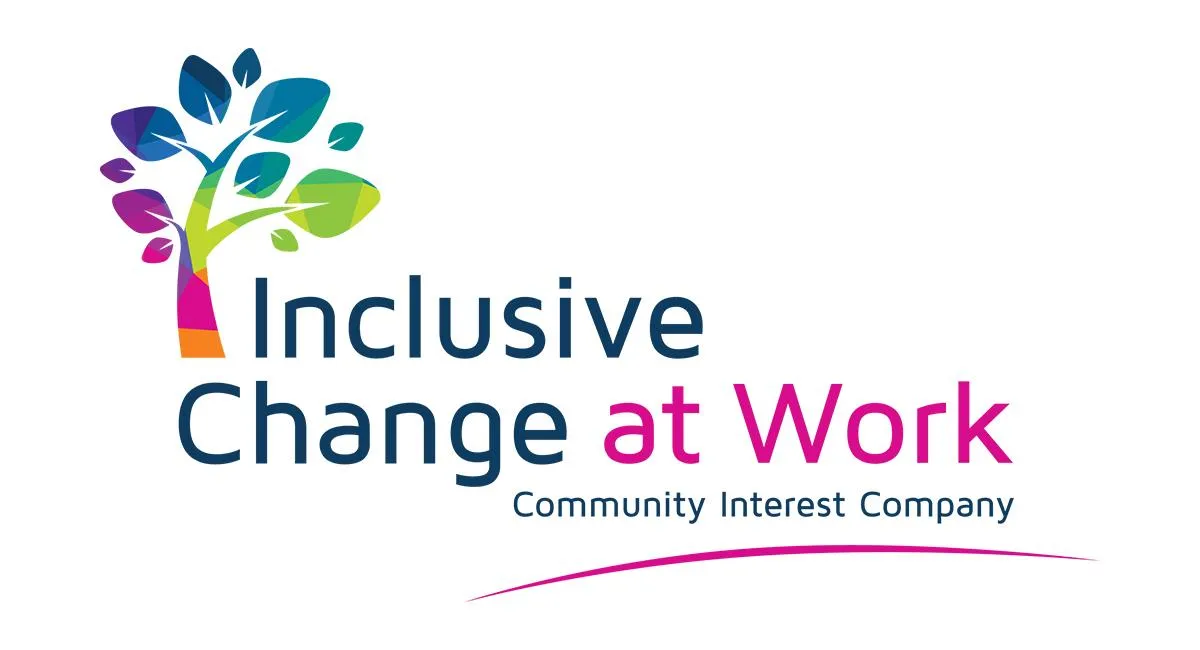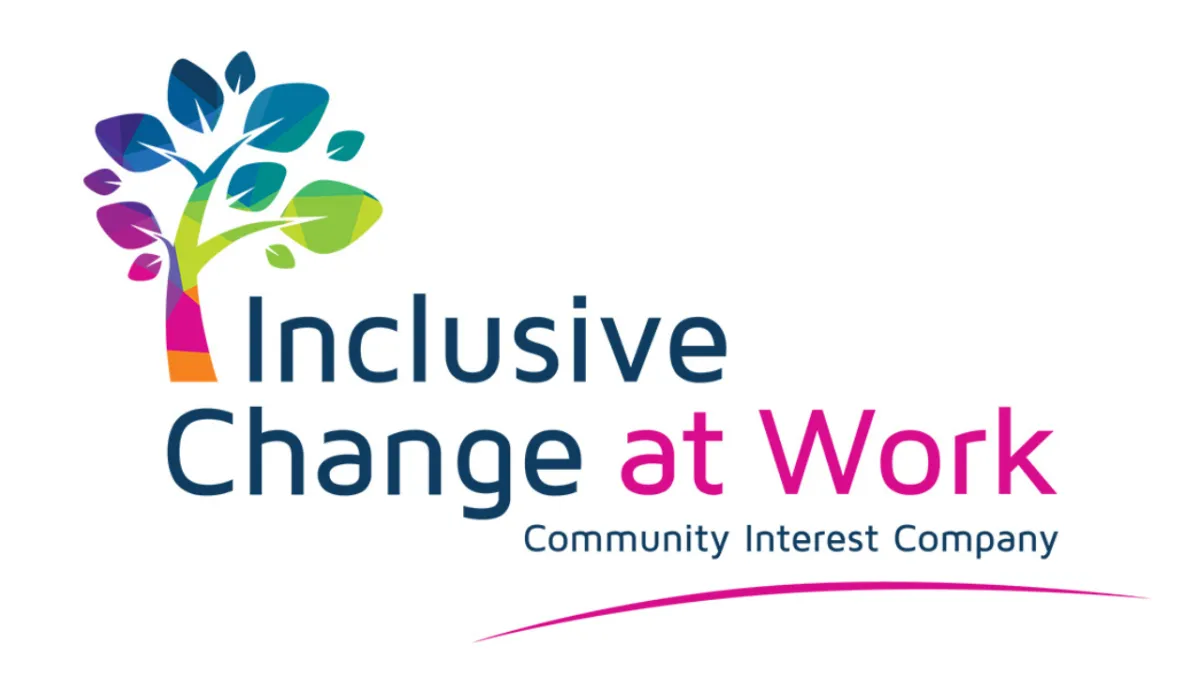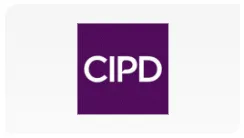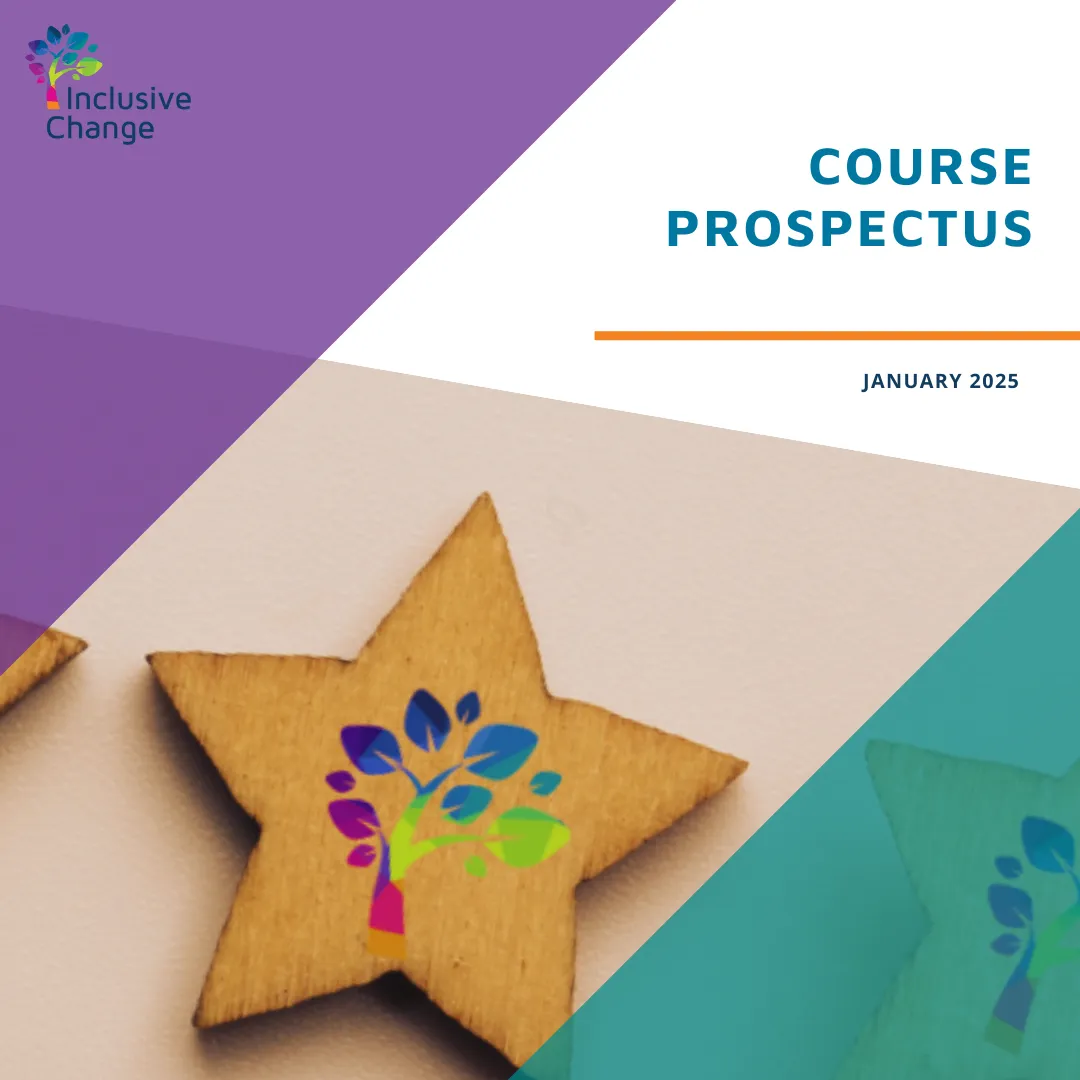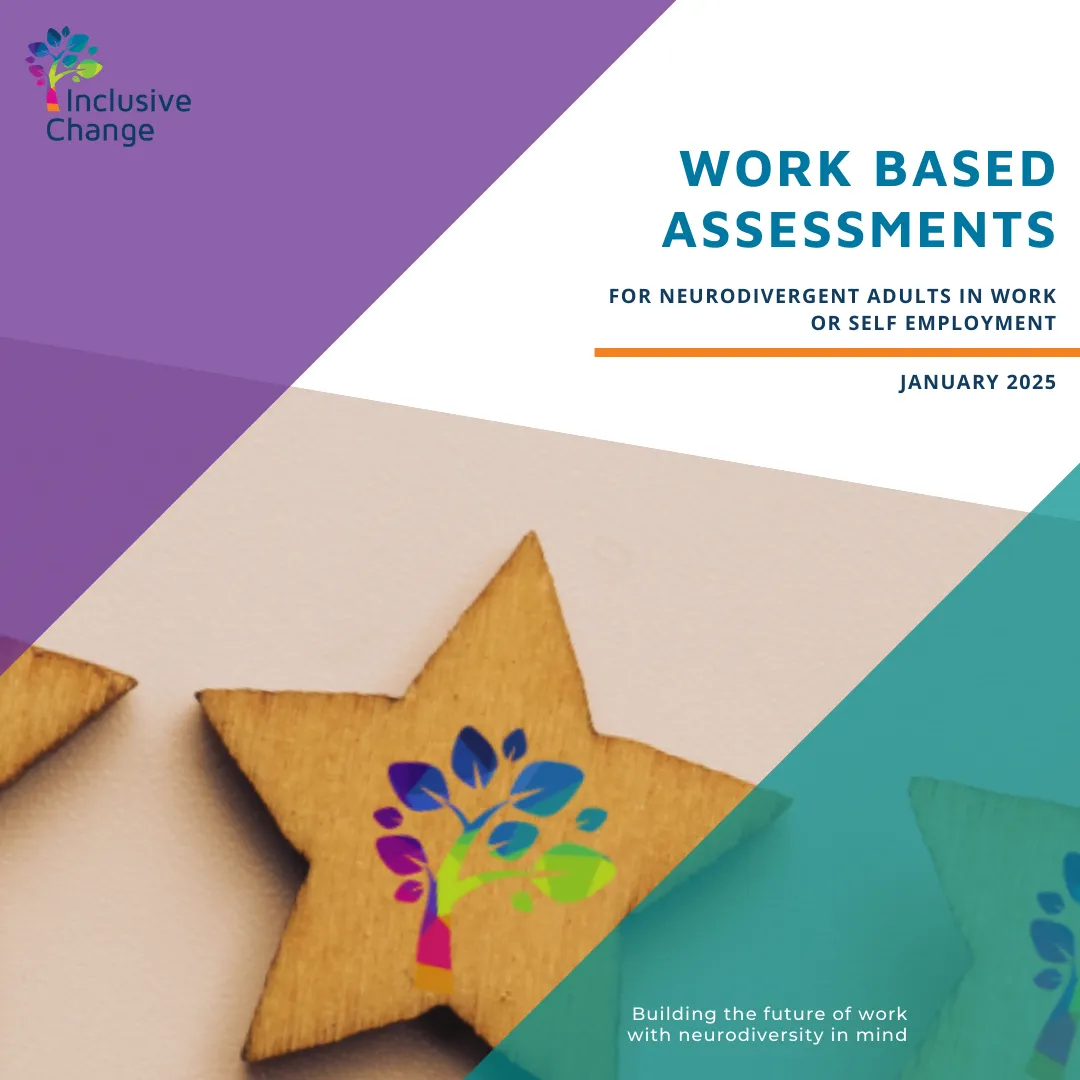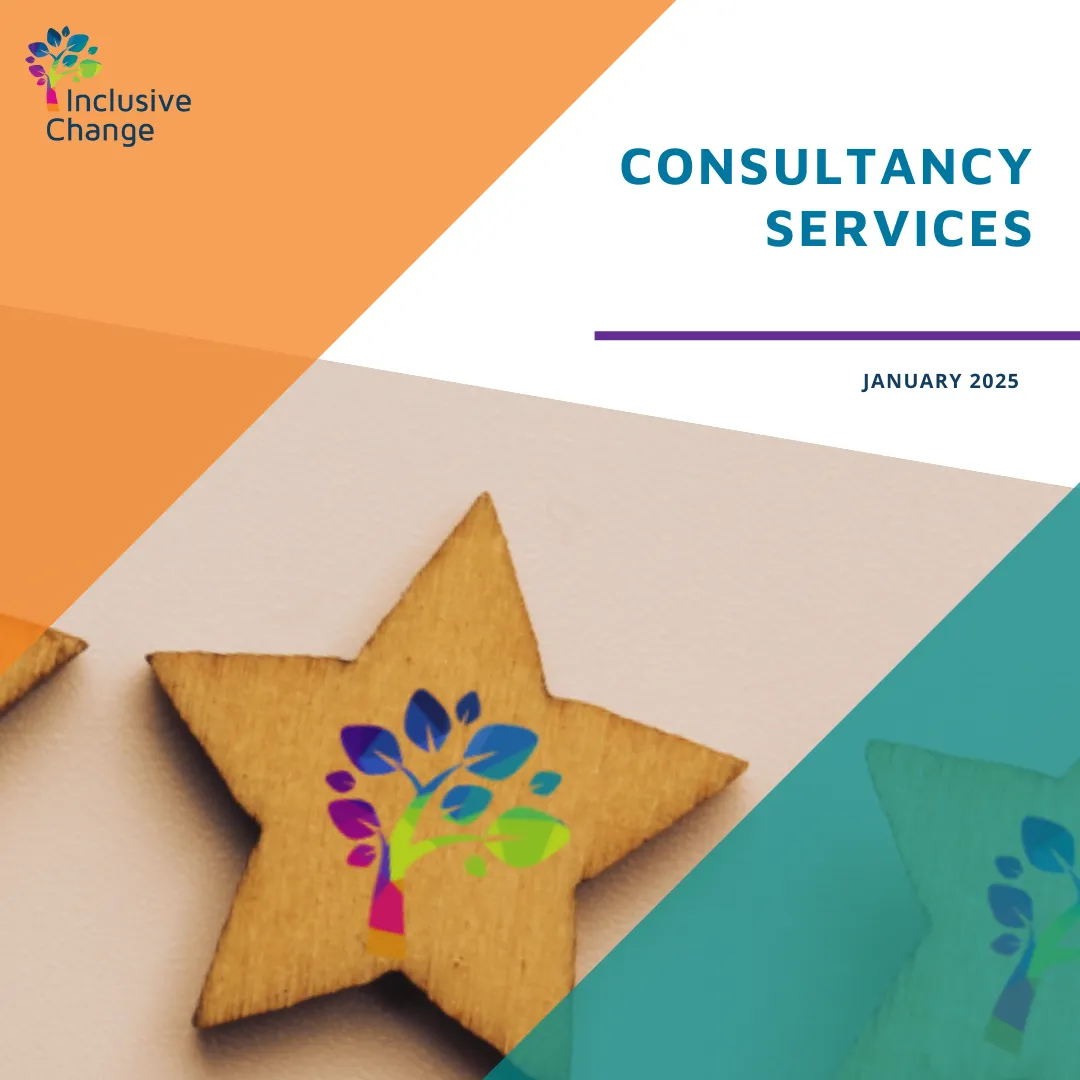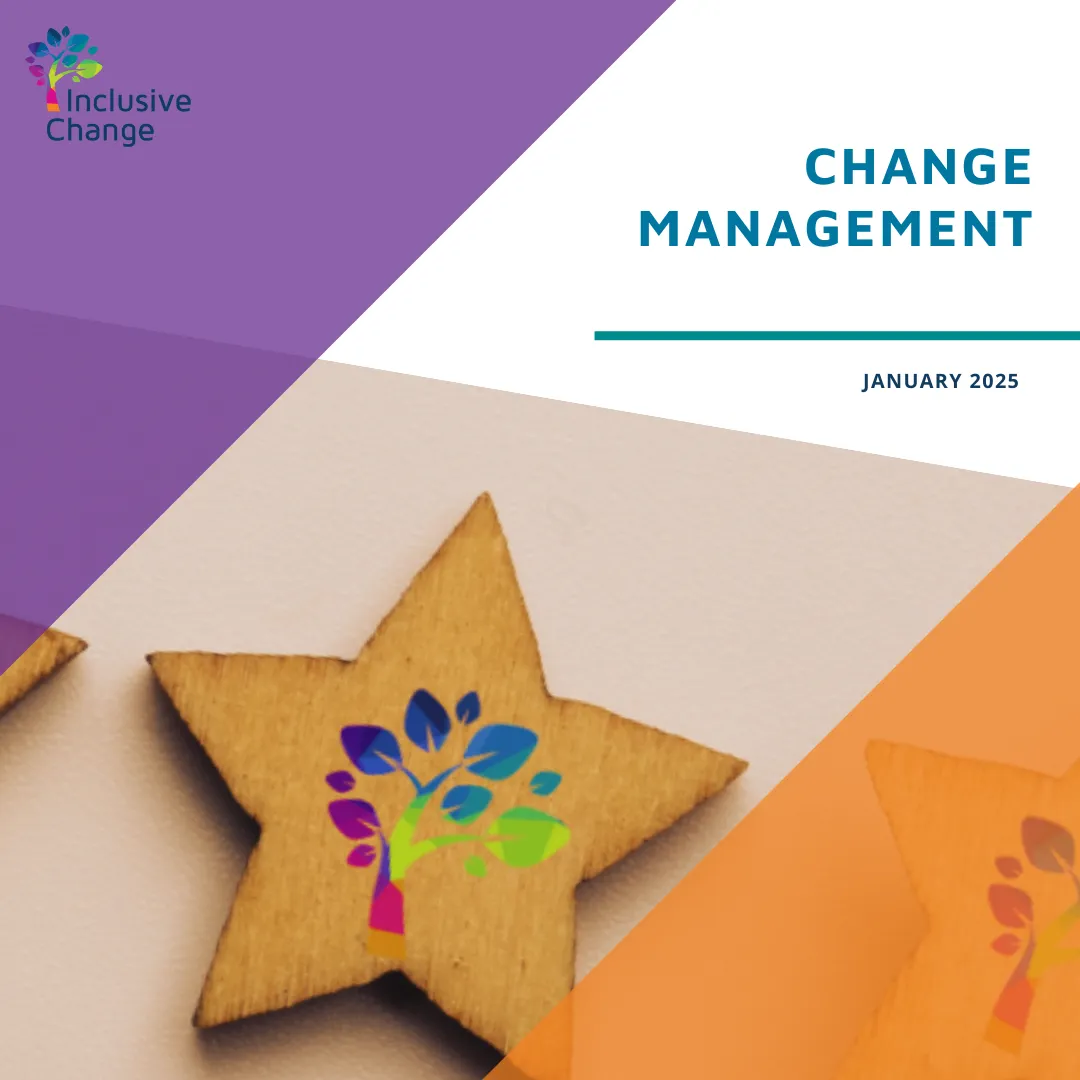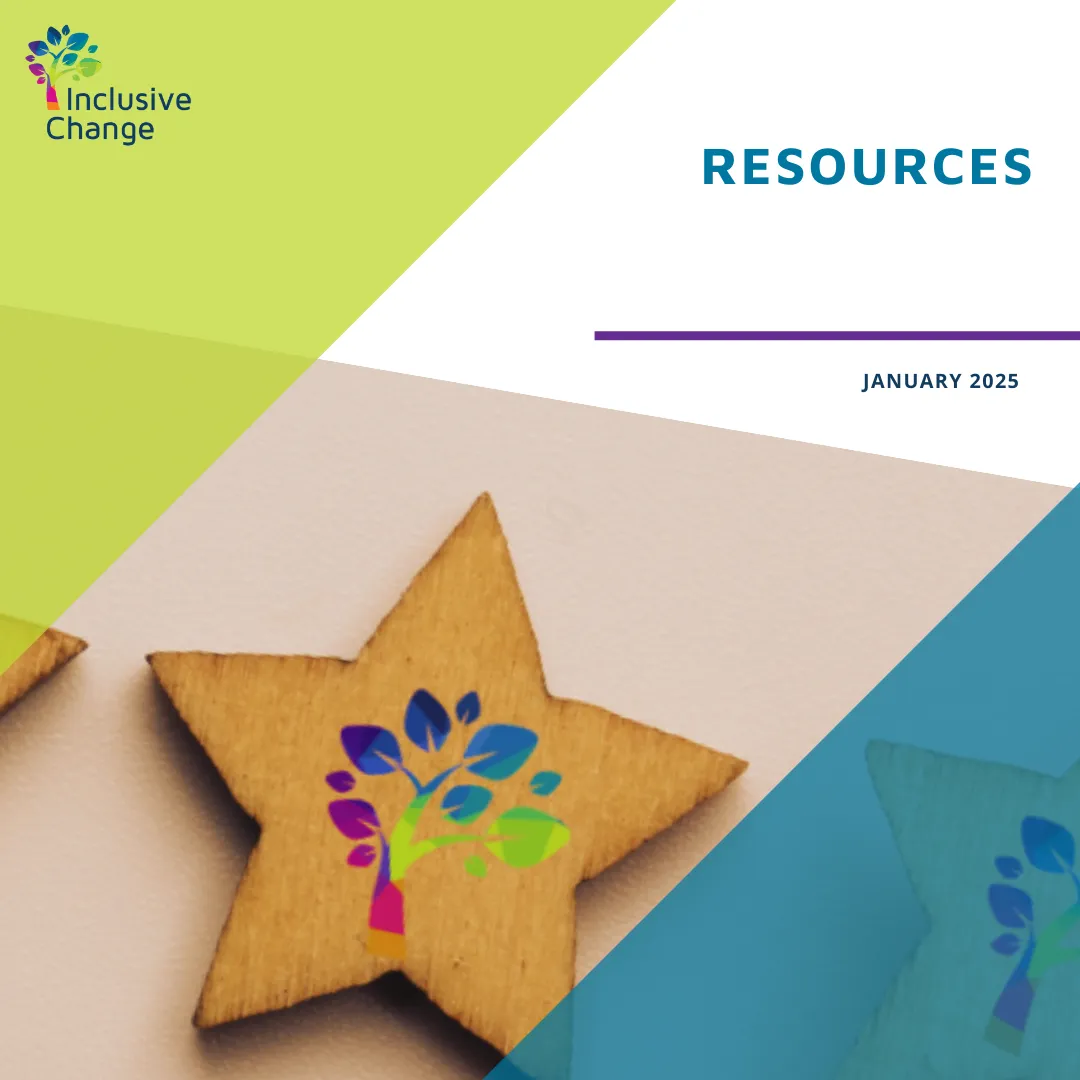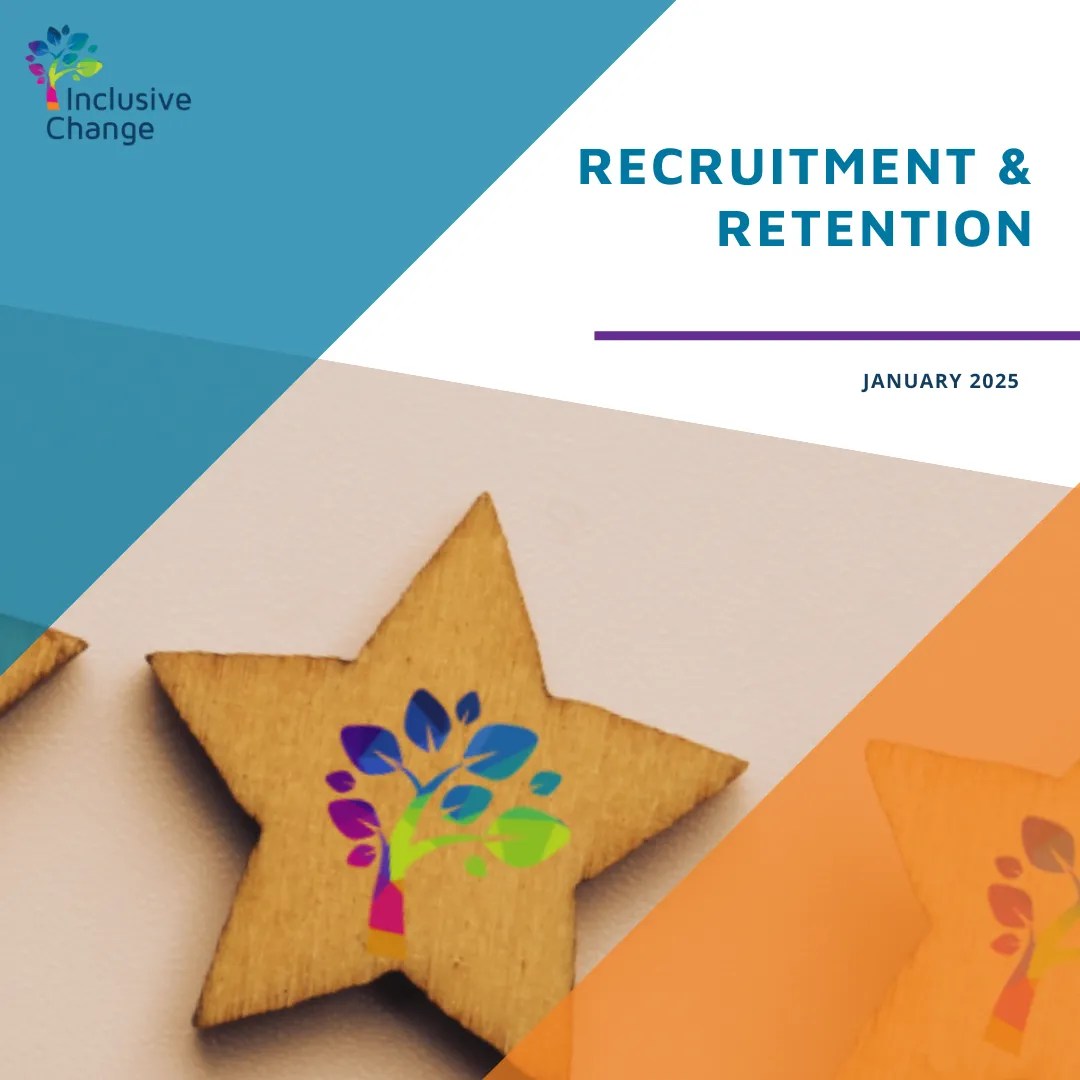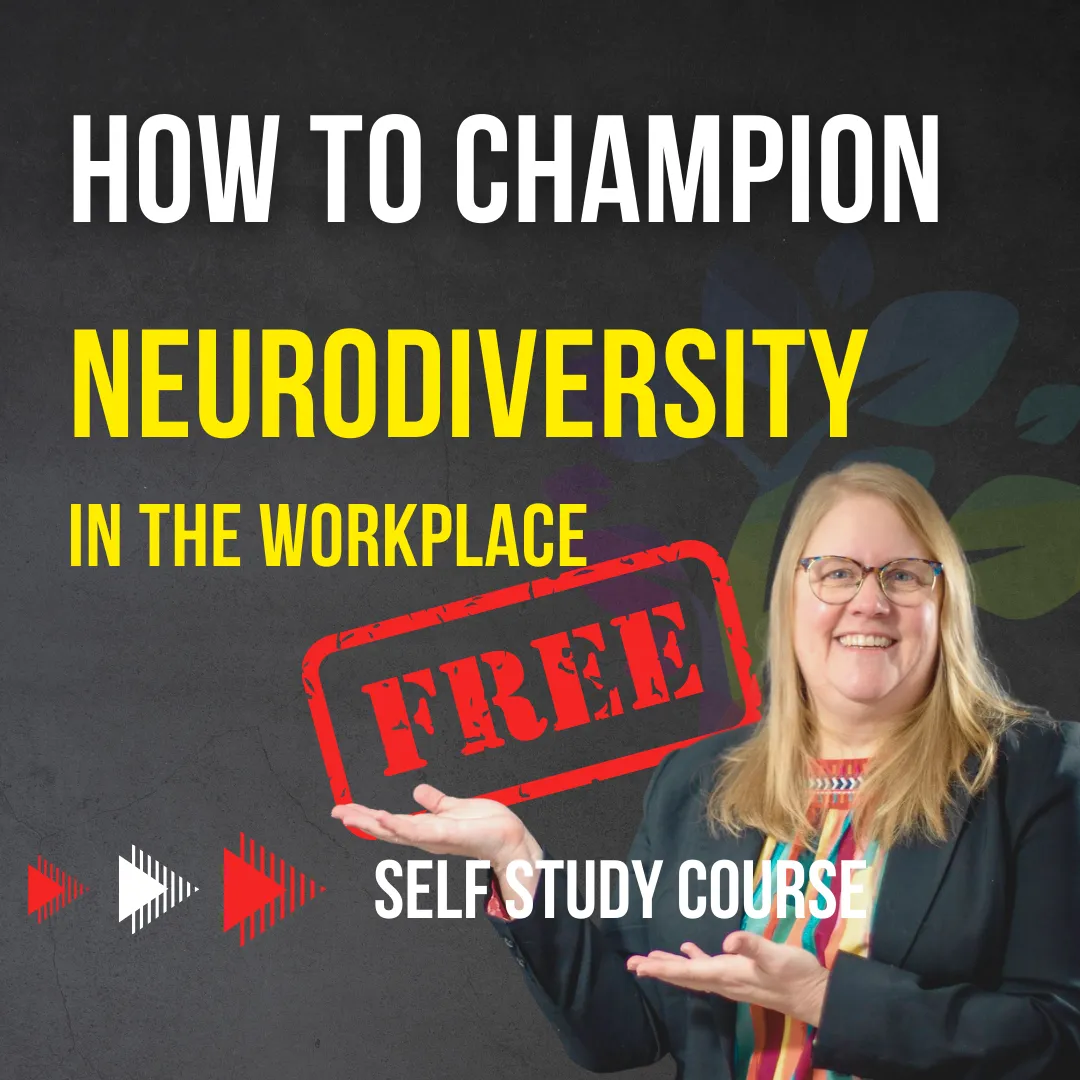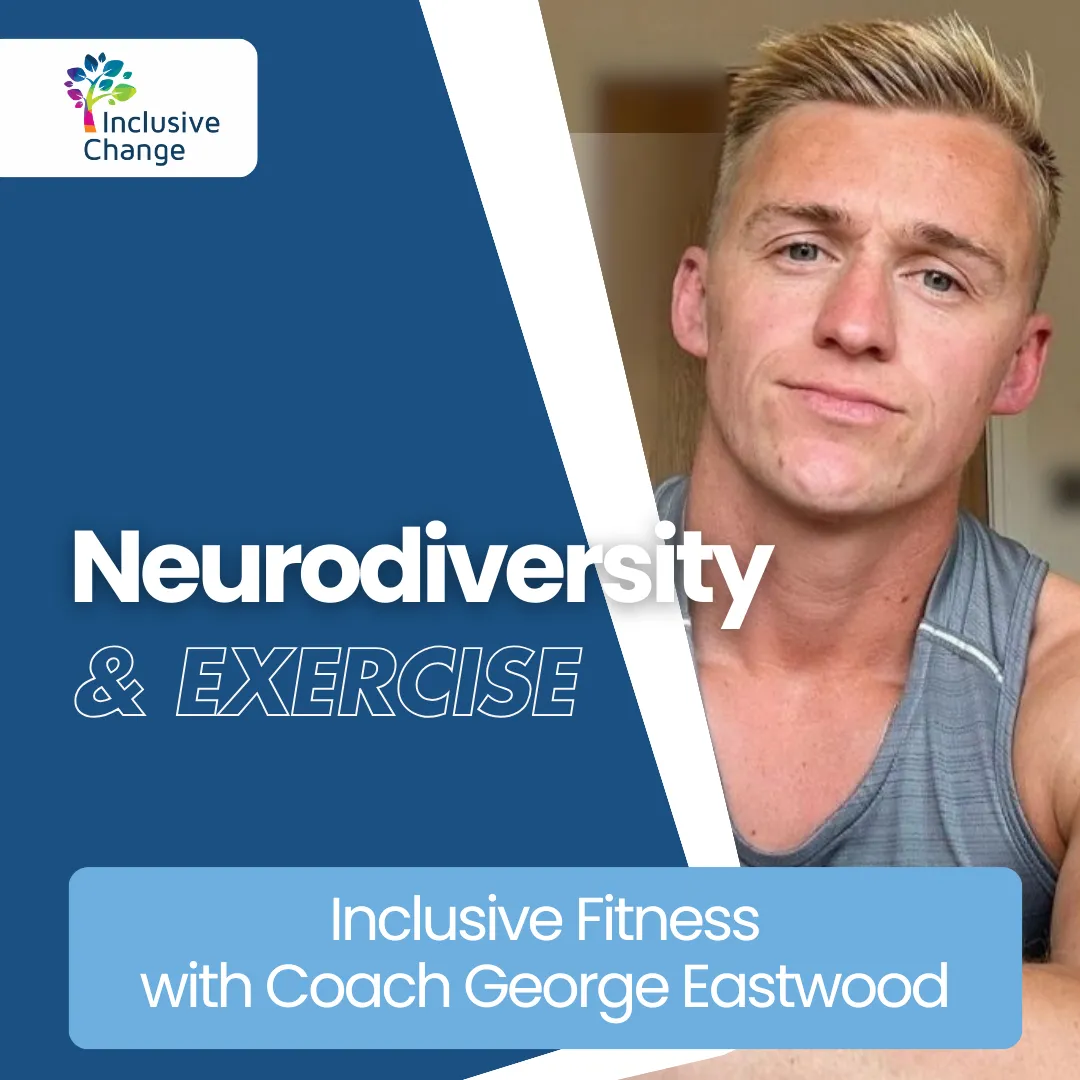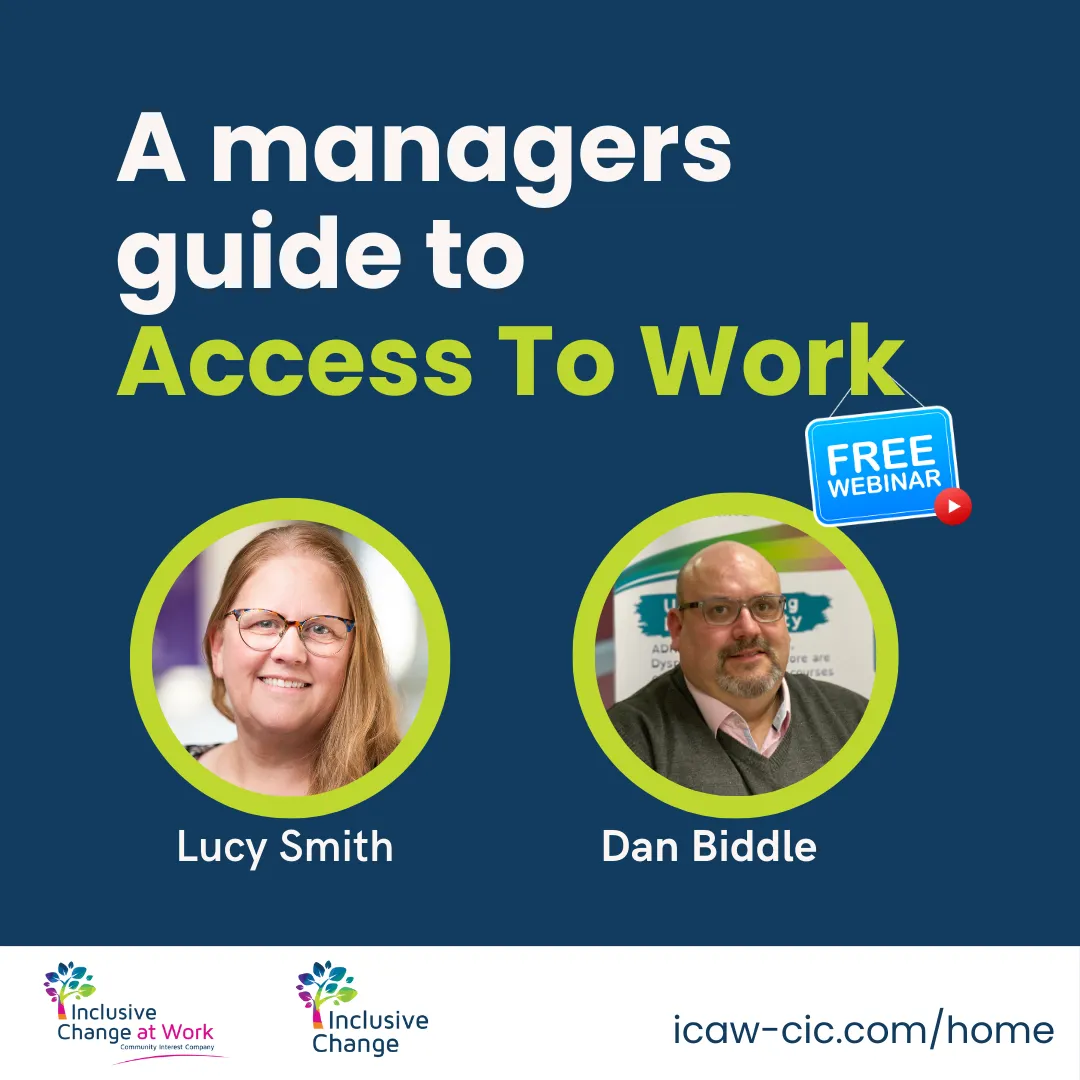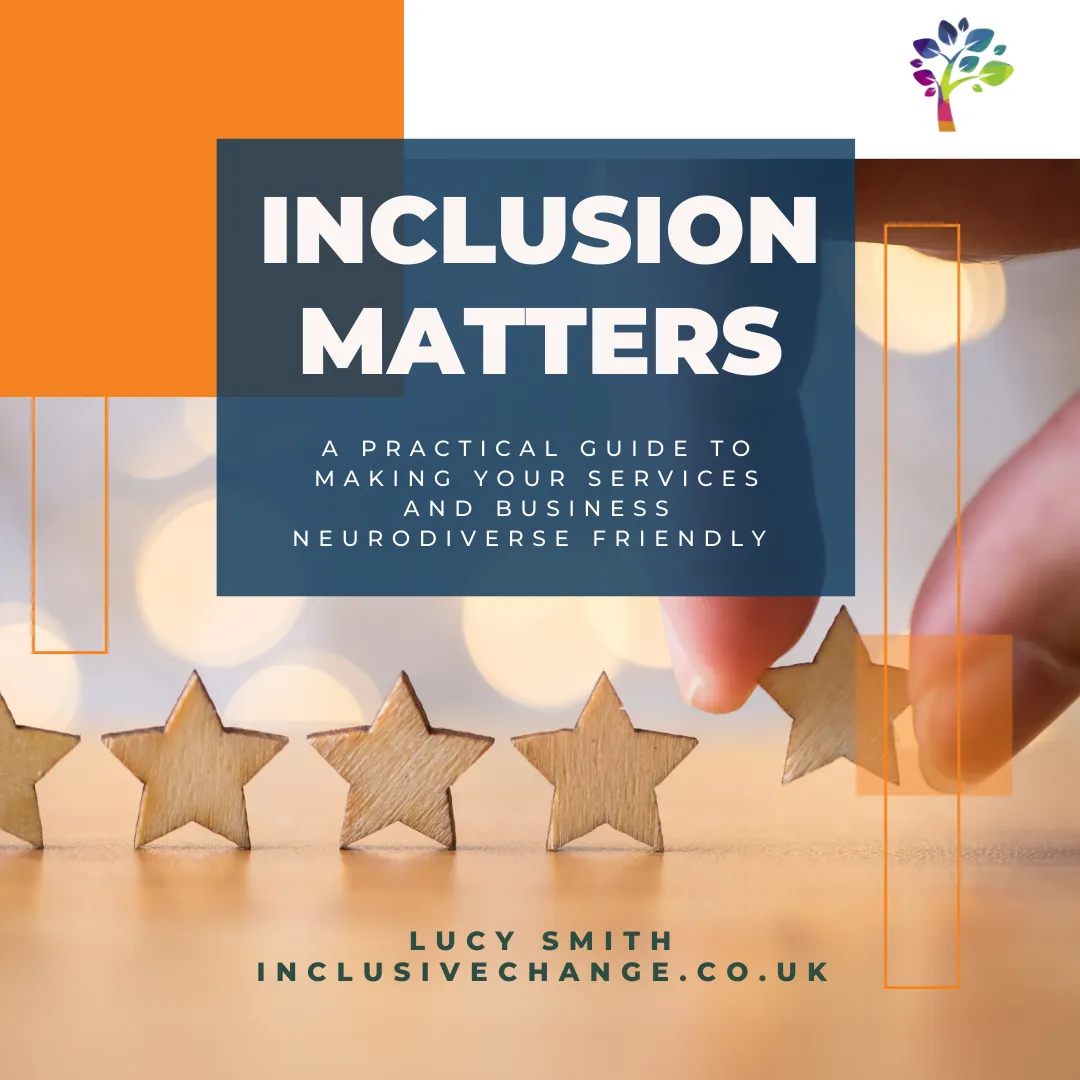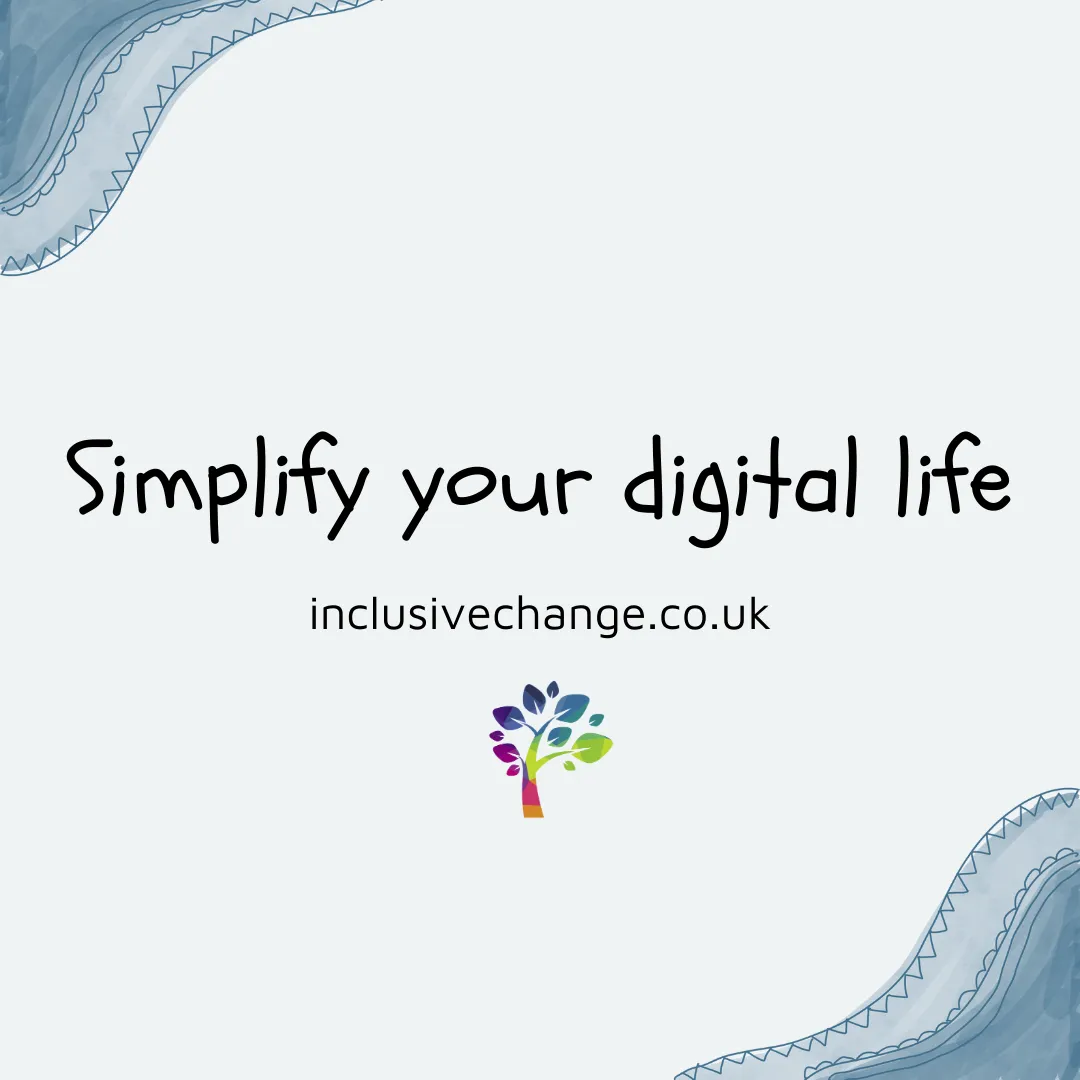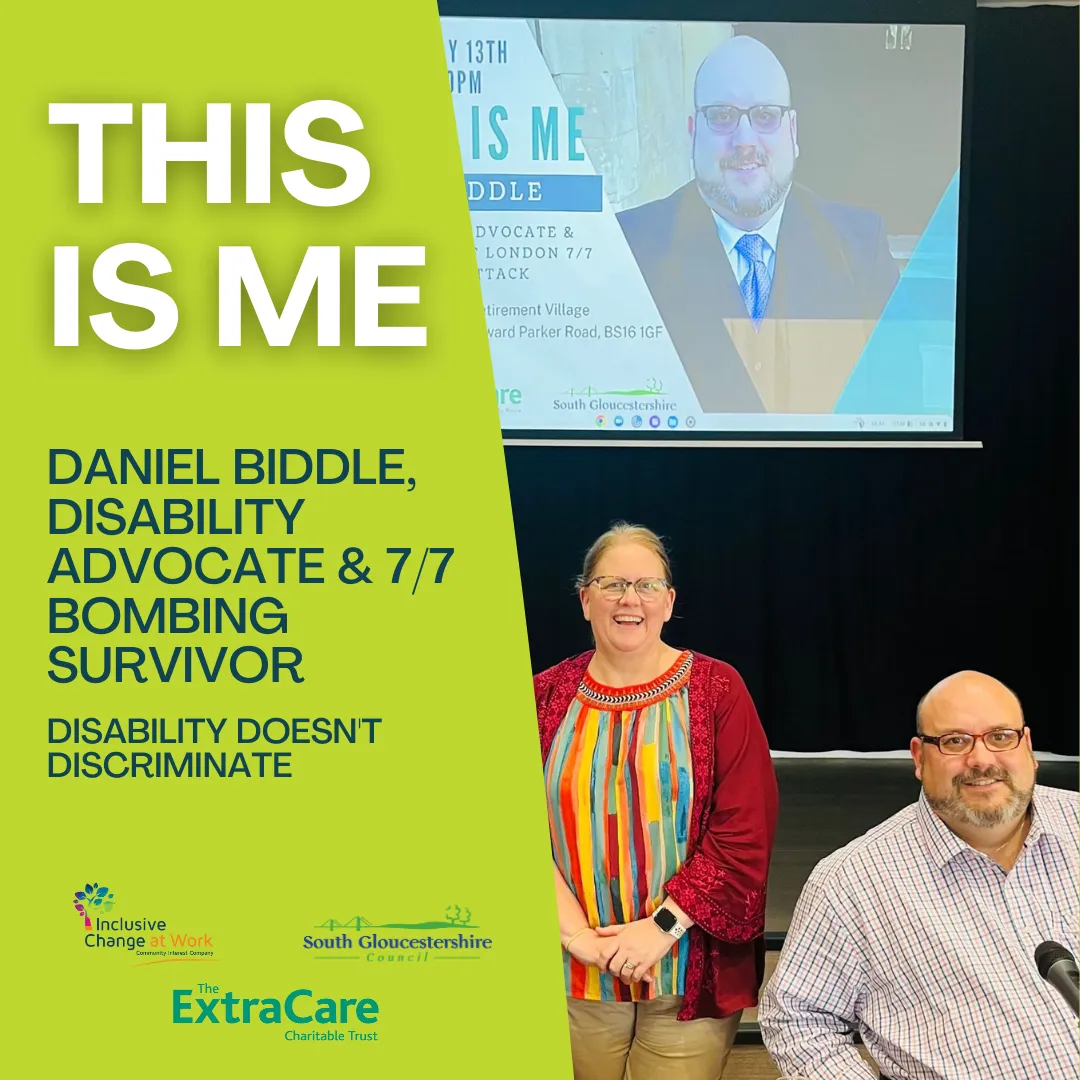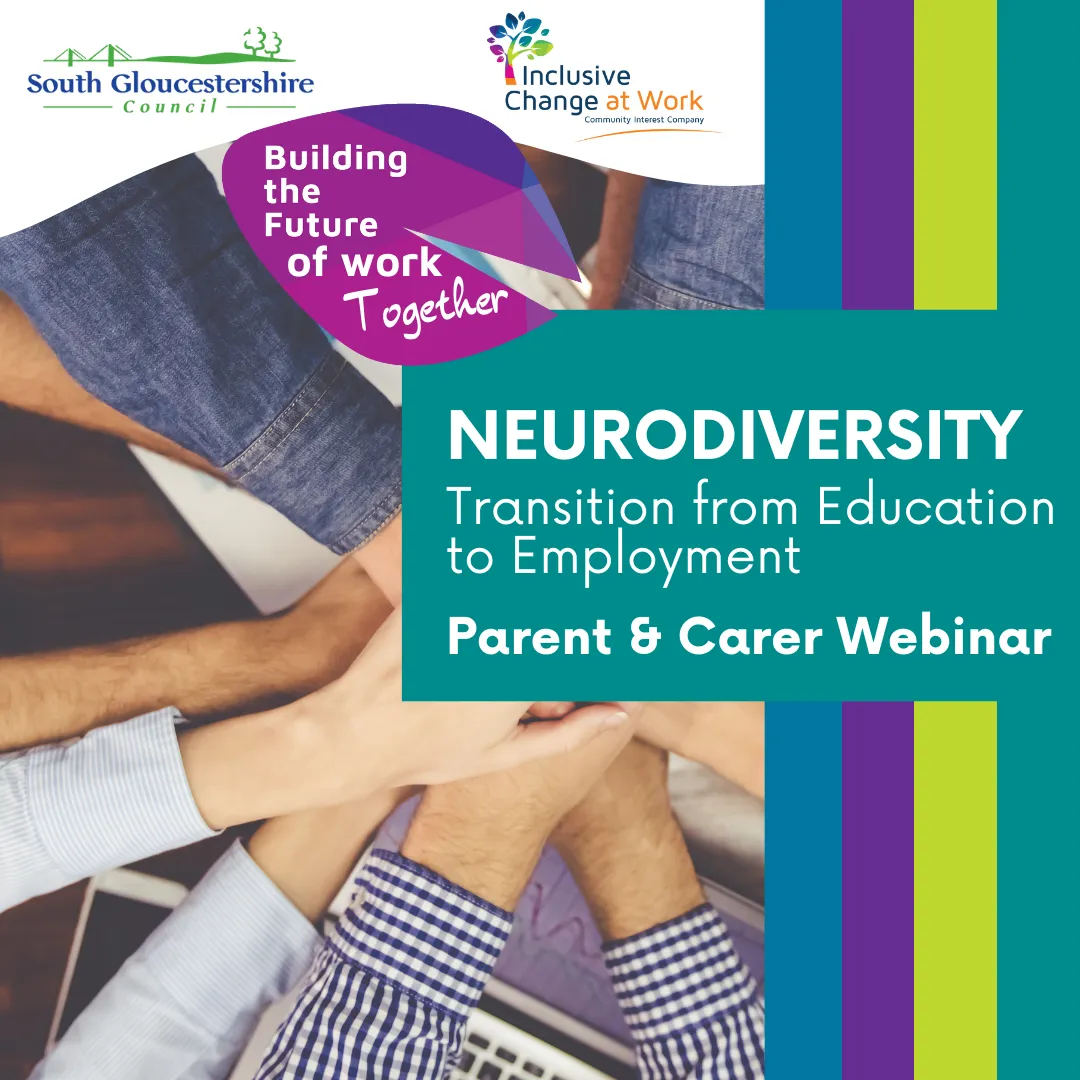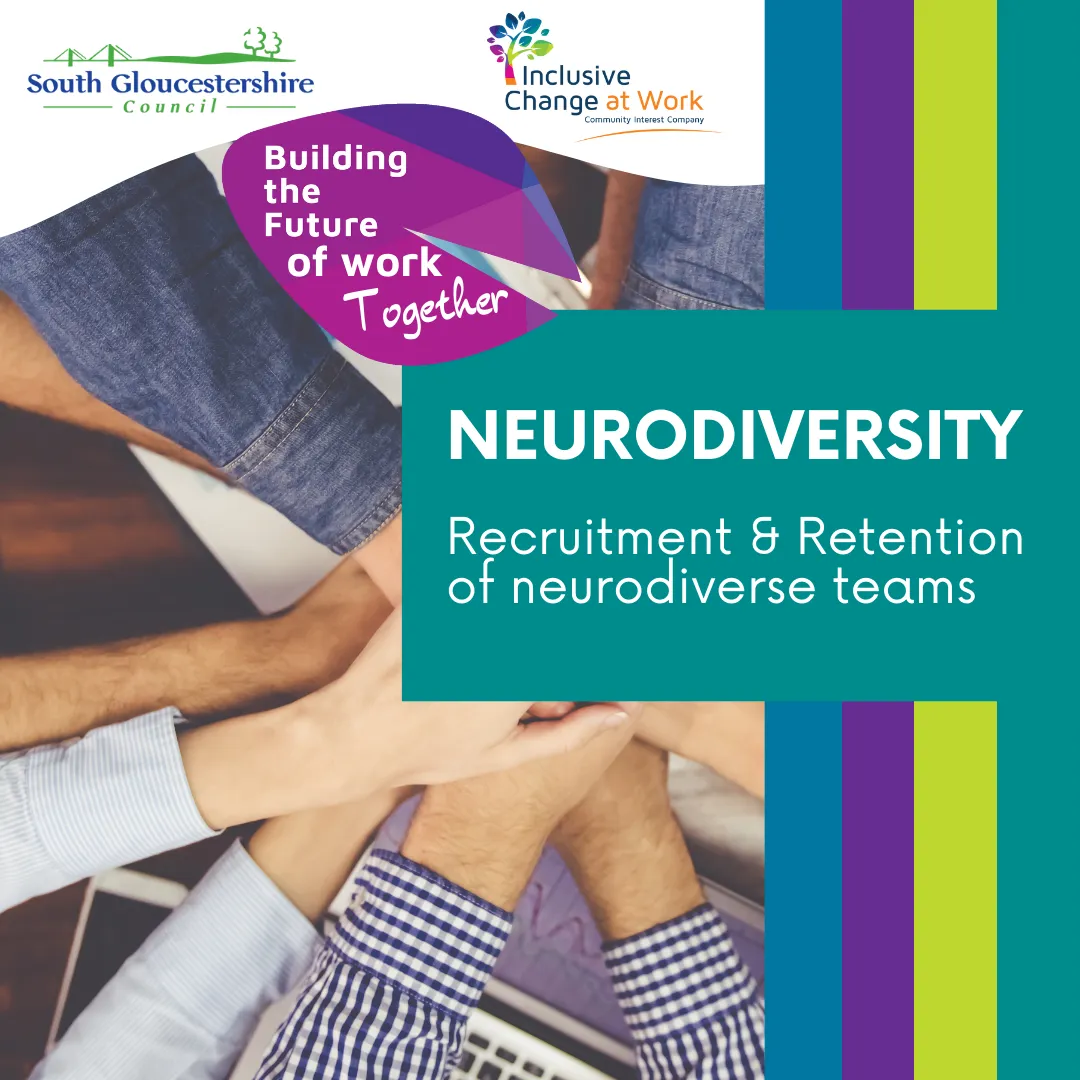Inclusive Change at Work
In the community
We want to thank you for attending our workshops in Emersons Green Village Hall, made possible with funding from Emersons Green Town Council. It has been wonderful to meet so many people and spark meaningful conversations about Inclusion.
We offer a variety of ways to collaborate and support your journey. Be sure to join our mailing list to stay informed about our latest projects, exclusive offers, and exciting initiatives.
To help you take your next steps, we’ve curated this page with valuable resources, insights, and new projects, designed to inspire and empower your conversations about neurodiversity. Dive in, explore, and Keep the Conversation Going!
A Recap of the Slides & Discussions
Let's Talk About Neurodiversity: Building an Inclusive Community Together
Date: 16th January 2025
Speaker: Lucy Smith
Key Takeaways From The Evening
Neurodiversity is Common but Overlooked – 1 in 7 people in the UK are neurodivergent, yet many face barriers in employment and inclusion.
Workplace Challenges Persist – Long assessment wait times, lack of disclosure (76%), and limited employer focus (49%) highlight the need for change.
Inclusive Workplaces Matter – Reasonable adjustments and open discussions help create supportive environments.
Younger Generations are Driving Change – 53% of Gen Z identify as neurodivergent, making inclusion more important than ever.
Action is Key – Safe spaces, advocacy, and meaningful support systems help neurodiverse communities thrive
Supporting Neurodivergent Families
Date: 30th January 2025
Speakers: Lucy Smith & SGPC
Key Takeaways From The Evening
Inclusive Spaces Foster Support – Creating environments where neurodivergent individuals feel safe and valued is essential for meaningful inclusion.
Resilience is Key – Building resilience through learning, coping strategies, and supportive frameworks helps neurodivergent families navigate challenges.
Workplace and Education Accessibility Matters – Reasonable adjustments in schools and workplaces ensure neurodivergent individuals can succeed without unnecessary barriers.
Open Dialogue Encourages Understanding – Safe spaces for discussion help break stigma, allowing neurodivergent individuals and allies to share experiences and seek support.
Ongoing Support and Resources Make a Difference – Access to helpful resources, events, and advocacy networks empowers neurodivergent communities to thrive.
Building the Future of Work With Neurodiversity in Mind
Date: 6th February 2025
Speakers: Lucy Smith & Andy Jackson
Key Takeaways From The Evening
Neuroinclusion is a Business Advantage – Embracing neurodiversity leads to increased innovation, productivity, and employee retention. Yet, many workplaces unintentionally create barriers for neurodivergent employees.
The Social Model of Disability Matters – Disability is not about the individual but the barriers in their environment. Simple workplace adjustments, like sensory-friendly spaces and flexible communication styles, can unlock neurodivergent talent.
Inclusion is Needed at Every Career Stage – From recruitment to promotion, neurodivergent employees face unique challenges. Clear job descriptions, structured onboarding, and strengths-based performance reviews help ensure fairness.
Recruitment & Progression Need Reform – Traditional hiring methods often exclude neurodivergent talent. Companies should prioritize skills-based hiring, alternative application methods, and clear promotion pathways.
Actionable Steps Make a Difference – Businesses should start by reviewing hiring practices, improving workplace accessibility, investing in mentorship, implementing inclusive policies, and increasing diverse representation
Menopause and Neurodiversity
Date: 20th February 2025
Speakers: Kirsty Brown, Fitness for Life, & Lucy Smith
Key Takeaways From The Evening
Menopause Can Intensify Neurodivergent Traits – Changes in hormones can amplify difficulties with memory, focus, sensory sensitivity, emotional regulation, and fatigue, making daily life more challenging.
Dopamine & Cognitive Support Are Crucial – Activities like exercise, music, creative outlets, and structured routines help maintain dopamine levels, while a diet rich in protein, omega-3s, and key micronutrients supports brain function.
Self-Regulation Strategies Help Manage Symptoms – Sensory tools, mindfulness techniques, and cognitive-behavioral strategies can help counteract brain fog, mood swings, and attention difficulties.
Hormonal & Cognitive Support Can Be Beneficial – Hormone Replacement Therapy (HRT) may help some individuals, while structured routines, planners, and reminders aid in managing cognitive challenges.
Community & Environmental Adjustments Matter – Reducing sensory overload, seeking peer support, and creating neuroinclusive workplace environments can improve well-being and productivity for neurodivergent individuals going through menopauseHere's some stuff
Digital Wellbeing for Young People
Date: 6th March 2025
Speakers: Lucy Smith & Emily Chittell
Key Takeaways From The Evening
The Impact of Digital Overuse – Excessive screen time, especially on social media, can negatively affect mental health, as seen in Owen’s experience of using their smartphone to escape emotions but ultimately worsening their mood.
Balancing Digital Consumption – It's important to be mindful of how digital tools influence our emotions and well-being, avoiding over-reliance on social media for coping.
Creating Digital Boundaries – Simplifying digital life can improve mental health, making space for healthier habits and real-world connections.
Support and Adjustments – Neurodivergent individuals may benefit from reasonable adjustments and access-to-work accommodations to create a more balanced digital experience.
Reasonable Adjustments and Access to Work for Neurodiverse Minds
Date: 20th March 2025
Speakers: Lucy Smith & Support Team
Key Takeaways From The Evening
Legal Obligation for Employers: Under the Equality Act 2010, employers must make reasonable adjustments to ensure that disabled employees are not at a substantial disadvantage in the workplace.
Defining Reasonable Adjustments: Adjustments can include changes to the workplace, working arrangements, task execution, or providing necessary support and equipment.
Disclosure and Employer Responsibility: Employees need to disclose their disabilities for employers to act on their duty to make adjustments. Employers are not obligated to assume or act on ambiguous signs of a disability.
Balancing Adjustments with Job Requirements: Adjustments should create fairness without lowering the essential standards of a role. Selection criteria should be inclusive but still maintain job integrity.
The Business and Cultural Benefits: Implementing reasonable adjustments fosters an inclusive workplace, reduces staff turnover, and leads to broader innovations that benefit all employees

Recommended Groups and Services
Articles & Reports
30% More Productive: The ROI of a neurodiverse workforce - 2023
New data suggests that 15% to 20%
of the population may be neurodivergent – up from estimates of 5% to 10% just five years ago. This shift underscores the critical need for employers to broaden the horizons of their diversity, equity and inclusion (DEI) efforts to encompass neuro-inclusion
Half of neurodivergent employees miss work due to lack of support - March 2024
Half of neurodivergent employees have taken time off work due to their neurodivergence, a 5% rise from last year, according to City & Guilds’ Neurodiversity Index. The report also found that 36% received no workplace support, and 18% didn’t know where to seek help.
New Survey by The Harris Poll Reveals Workplace Stigma for Neurodivergent Employees - May 2024
Understood.org, a leading nonprofit empowering more than 70 million neurodivergent people who have learning and thinking differences, such as ADHD and dyslexia, today announced the results of a Harris Poll of over 2,000 U.S. adults ages 18+. The poll shines a light on the challenges and opportunities facing people with learning and thinking differences, such as ADHD, dyslexia, or dyscalculia, in the workplace.

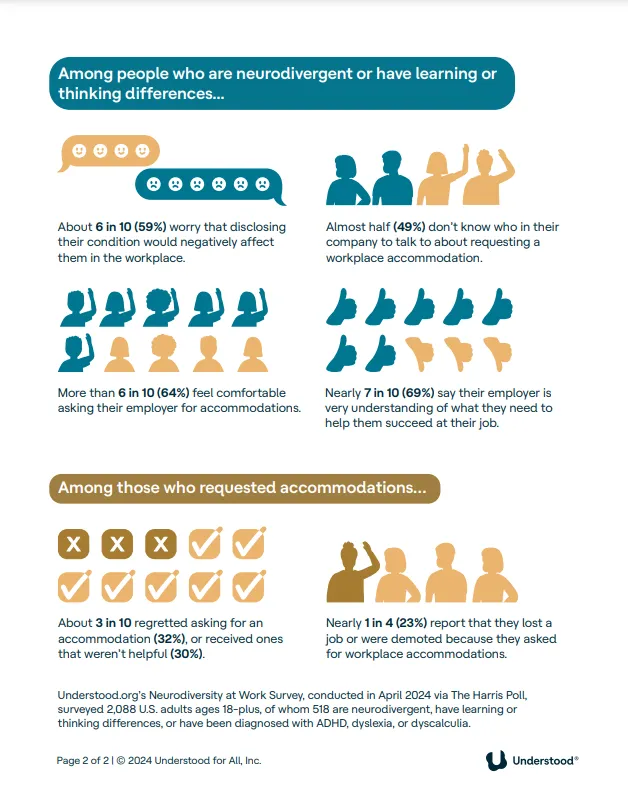
CIPD Neuroinclusion at work report 2024
The reality of neurodiversity means that every interaction at work takes place between people with different brains – yet, typically, very few organisations are thinking about neurodiversity or neuroinclusion. This represents a significant missed opportunity for organisations looking to address their key talent priorities at the same time as addressing inequalities at work faced by neurodivergent people
Meet Your Hosts and Expert
Speakers

Lucy Smith
Lucy is the founder of Inclusive Change and Inclusive Change at Work CIC. She has lived experience of neurodiversity and has been working in the area of neurodiversity for 6 years. Lucy combines a career in change management in internationally renowned organisations with experience in education to create thoughtful and inspiring training and consultancy services.

Daniel Biddle
Daniel is a highly experienced accessibility consultant with extensive experience of disability. Daniel has particular expertise in acquired disability, including acquired neurodiversity. He established the National Disability Employment & Advisory Service in 2022 and focuses on supporting neurodivergent young people & adults into employment.

Kirsty Brown
Kirsty is a proactive, self-motivated individual with managerial experience in motivating teams and providing exemplary service. As a personal trainer and women's health coach, I use an empathetic approach to set and monitor achievable goals, adapting strategies to support clients through life's challenges. My expertise in menopause coaching includes workshops that empower women to confidently make lifestyle changes and navigate difficult times.

Vicky Henderson
Vicky is a multi-award-winning coach, mentor, speaker and trainer. She specialises in working with young people (11-24yrs) helping them grow in confidence, feel happy and generate hope and excitement for a better future.
In addition to working with young people, Vicky also works with parents, schools and employers, to ensure that all young people are afforded the support and help they need to thrive.

Andy Jackson
Andy is a Non-Executive Director of Inclusive Change at Work CIC, as well as an entrepreneurial and leadership coach and a dedicated advocate for neurodivergent individuals.
As a parent to a young adult navigating life with undiagnosed neurodivergence, Andy brings both professional expertise and personal insight to their work.
A skilled coach, facilitator, and trainer, Andy is passionate about enhancing organisational performance and supporting teams to thrive.
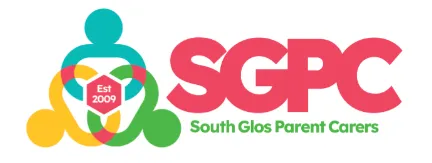
South Glos Parent Carers
South Glos Parent Carers (SGPC), the local parent carer forum that represents & supports parent carers of children and young people with Special Education Needs and Disabilities (SEND) in South Gloucestershire. Driven by a desire to make a difference for every SEND family in South Gloucestershire, SGPC attend meetings across the education, health and social care sectors to ensure service providers understand the challenges families face, so that positive changes can be made. SGPC also offer support to parent carers, via online and drop-in support sessions as well as workshops on a range of SEND topics. The SGPC team are all parent carers themselves, so they truly understand the SEND journey & challenges. From their personal experiences & those of their community, they have gained valuable insight, information and a wealth of SEND knowledge.
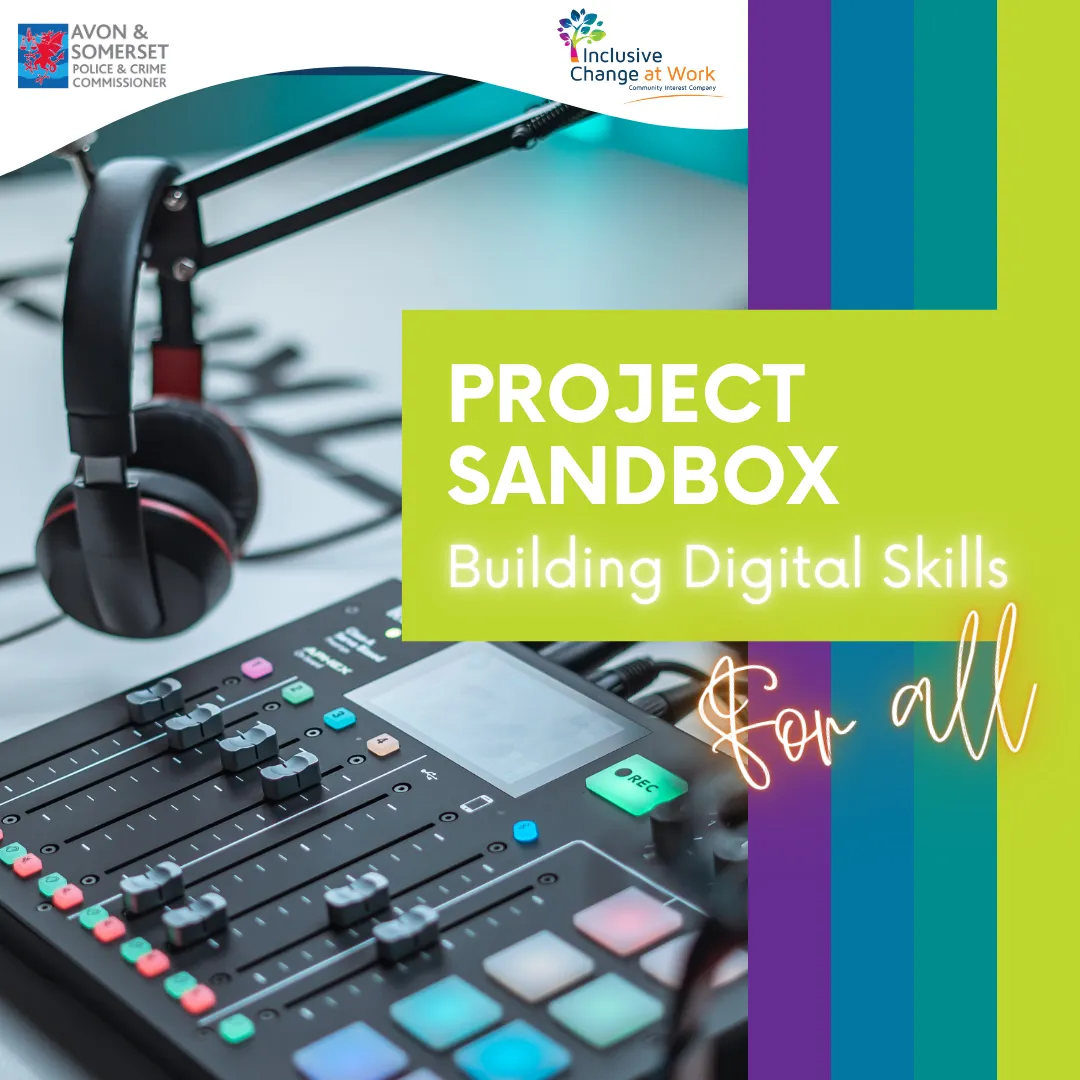
Discover Project Sandbox: Shaping a Safer Digital Future
Inclusive Change at Work CIC proudly presents
Project Sandbox, a ground-breaking initiative designed to champion digital safety and disability inclusion.
In collaboration with the Avon & Somerset Police & Crime Commissioner, we’re creating an engaging series of podcast and radio episodes that dive deep into building safer digital spaces for disabled and neurodivergent individuals.
We invite you to be part of this important conversation and join us in driving meaningful change.
Stay tuned, get involved, and let’s make the digital world a place for everyone.
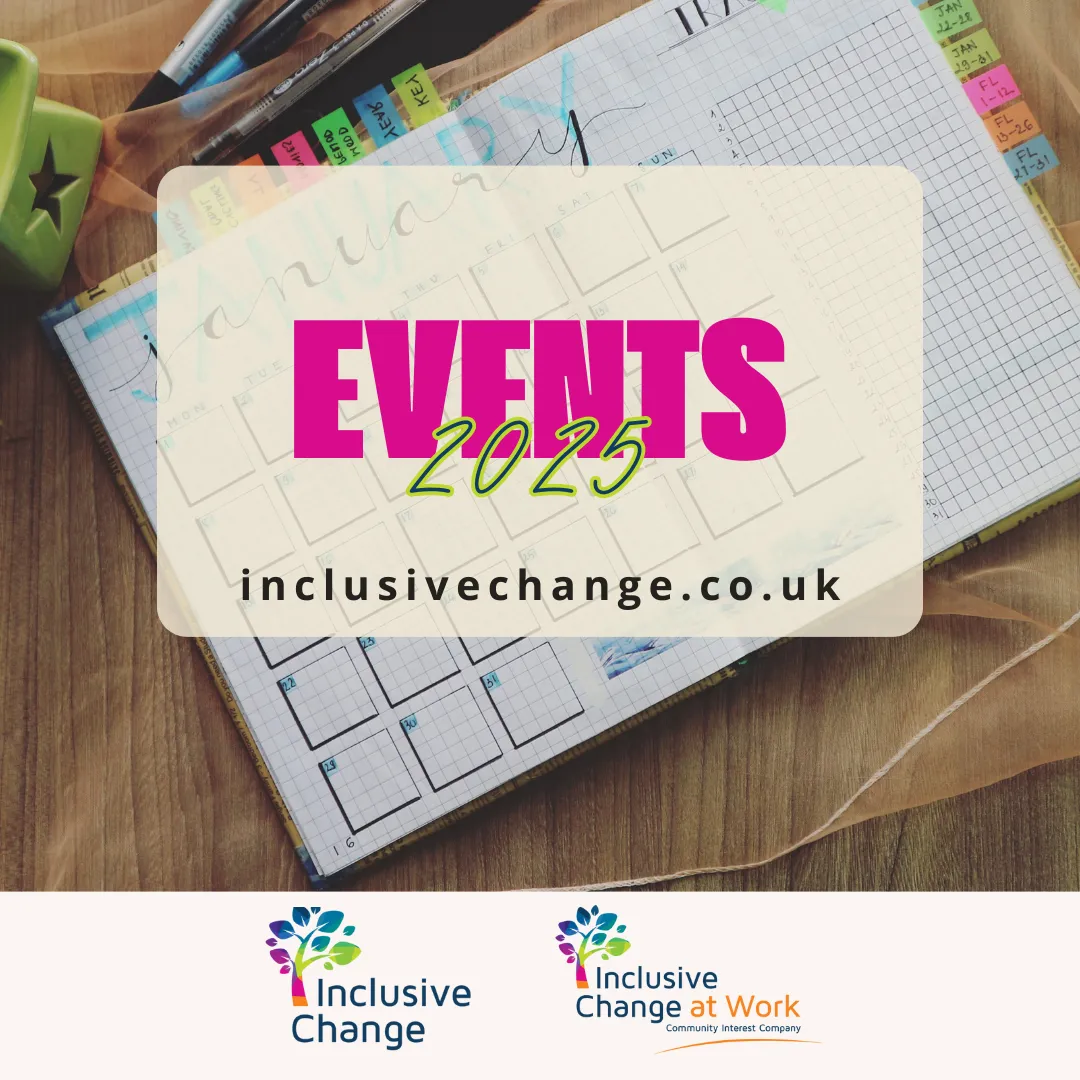
Important Dates in Our Calendar
June 2025
2nd - Understanding & Empowering ND in Sport - Glos. F.A
9th-10th - Festival of Sustainable Business - Bristol Beacon
12th - F'Up Exeter - The Bootlegger, Exeter
July 2025
22nd - F'Up Bristol - The Square Club, Clifton
Free Resources - Guides, Webinars & Courses
Check Out Our Latest Blog Posts
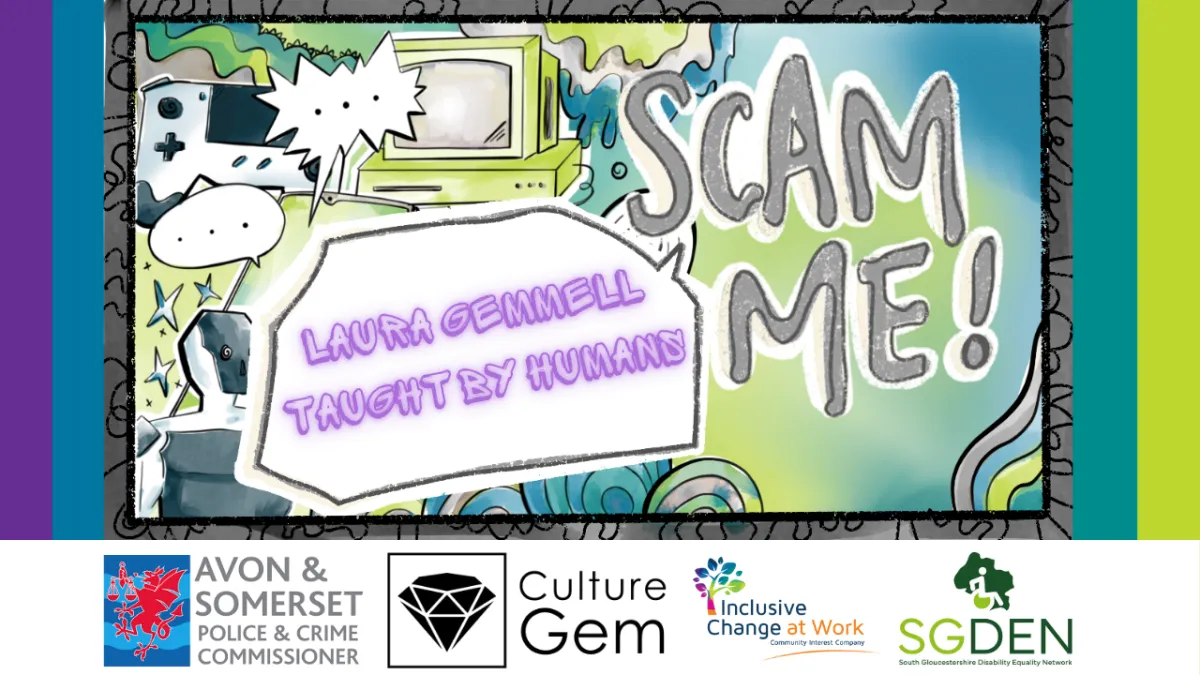
AI, Deepfakes, and Digital Safety, with Laura Gemmell
AI Has Been Around Longer Than You Think
When most people think about AI, they picture ChatGPT or a Hollywood robot. But as Laura points out, the concept of artificial intelligence has been around since the 1960s. Alan Turing, famous for cracking Nazi codes, was already talking about machine intelligence back in the 1940s.
So, what’s changed recently?
The big shift came in 2023, when ChatGPT hit the scene. Unlike earlier AI tools, ChatGPT was conversational. You could actually 'chat' with it, like a helpful, if slightly robotic, assistant. That was a game-changer, especially for the public - suddenly, everyone had access to AI in their pocket.
But with great power comes, well, scams.
Why People Don’t Trust AI - And Why That Makes Sense
A big theme in this episode is trust - and how easily it can be shaken when we don’t understand what’s happening under the hood.
Laura breaks it down:
Many people don’t know how their data is used.
AI tools often ask for lots of personal information.
Most of us don’t have time (or spoons) to read the terms and conditions.
Scammers know this - and exploit it.
Think about it: If you wouldn’t post something in a blog or tell it to a stranger in the pub, should you really put it into an AI tool?
Her tip? “If you don’t know who built it, or where your data is going, don’t upload your face, voice, or life story.”
Deepfakes, Voice Clones, and the New Face of Scams
Let’s talk deepfakes.
These AI-generated videos and voice recordings can mimic real people almost perfectly. That means a scammer could fake a phone call from your bank, or even from your mum. It's not just theory. It’s happening now.
One big area of concern? Identity verification. Banks often ask for video or voice ID to confirm who you are. But if scammers get hold of just a short voice clip, they can potentially create an audio deepfake that tricks systems. That’s terrifying.
Laura’s advice: don’t record or upload your voice or face unless it’s for a verified purpose from a trustworthy company. Always double-check URLs, terms of use, and privacy policies.
AI Is Already in Your Life - Even If You Don’t Realise It
While the media tends to focus on futuristic AI, Laura reminds us: “AI is already everywhere.” Here are just a few examples:
Netflix & Spotify recommendations? AI.
Banking decisions (like credit scores)? AI.
Self-checkouts, Snapchat filters, and autocorrect? Yup, also AI.
You’re probably using AI 10 times a day without even thinking about it. And most of the time, it’s fine. But when it crosses into private data or decision-making that affects your life—like job interviews or healthcare—that’s when things get serious.
How to Stay Safe: Tips You Can Use Today
Laura offers some grounded, practical advice that anyone can follow:
Use tools from known brands
Stick with big names like Google’s Gemini or Microsoft’s Copilot. You already trust them with your data - don’t jump into the unknown.Read the privacy policies (or find someone who can explain them)
Look for blogs or trusted people who break it down clearly, just like we trust Martin Lewis with money advice.Avoid uploading sensitive content
Don’t give your full name, voice, or ID to tools you’ve never heard of.Reject cookies when possible
Those little popups asking about cookies? They track your location and behaviour. Reject them unless you absolutely need the feature.Know it’s not your fault
Scammers are getting slicker every day. If you fall for one, don’t blame yourself - learn from it and share the experience with others.
Can AI Be Helpful for Disabled and Neurodivergent People?
Short answer: Yes, massively.
Laura, who has dyslexia, shared how she uses ChatGPT to help structure her ideas when applying for grants or writing content. “It’s like having a sounding board,” she explains. She feeds in her rough thoughts, and the AI helps turn them into something polished. Then she edits it to keep her own voice and meaning.
Other tools like Fathom can record meetings and generate transcripts, great for anyone with memory or processing issues. And AI can help with planning, prioritising, and managing executive function challenges, especially for people with ADHD or autism.
But again: Only use tools you trust, and be clear about where your data is going.
Will AI Take Our Jobs?
This is one of the biggest fears people have, and it’s valid.
Yes, some jobs will change or go away. Customer service roles, for instance, may be replaced by AI chatbots. But Laura argues that many new roles will be created too, especially in areas like data labelling, AI oversight, and ethical design.
The key, she says, is upskilling. People need support and training to move into new roles. And the government, employers, and educators need to take responsibility for making that shift possible.
AI, Accessibility, and Older Adults
What about people who aren’t online much? Or older adults who aren’t confident with tech?
That’s a serious concern. As Lucy points out, even accessing your bank is hard if there’s no branch nearby and you don’t know how to use a smartphone.
Laura’s take: Confidence is the first barrier.
Many older people blame themselves when something goes wrong with tech. We need to shift the mindset: “It’s not your fault, it’s just a poorly designed system.”
Digital inclusion doesn’t just mean giving people a tablet. It means ongoing, compassionate support, and designing tools that work for everyone, not just the most tech-savvy.
Is AI Biased? Yes. Let’s Talk About It.
If only one kind of person designs AI, it only works well for them.
That’s why AI sometimes can’t recognise certain faces, misreads facial expressions (especially from autistic or disabled people), and fails to understand different accents. This is a massive issue in recruitment, education, and policing.
Laura’s quote of the day:
"We need AI that works for the 8 billion, not the 8 billionaires.”
That means more diverse people working in AI, and building systems with ethics and inclusion in mind from day one.
AI in Education: Useful or Cheating?
It depends.
Laura uses the example of coding. You can use AI to write perfect code. But then you miss the process of learning how it works. Same with essay writing. If ChatGPT writes your essay, what are you really learning?
For young people, the advice is simple: Use AI as a tool, not a shortcut. Use it to plan, to brainstorm, to organise, but still do the learning yourself.
The Big Wins: Where AI Is Genuinely Amazing
Let’s end on a high note.
Laura shared two incredible success stories:
A taxi driver using AI to improve his written English
He used ChatGPT to polish his emails. His customer service improved, and he learned better English by seeing how his words were rephrased.Breast cancer detection
AI can now detect breast cancer in scans up to five years earlier than doctors, potentially saving thousands of lives.
These are the kinds of breakthroughs that show AI isn’t just a threat. It’s a tool. And with the right boundaries, education, and compassion, it can help us all.
Final Thoughts: Stay Curious, Stay Safe
Laura’s final message? Don’t be scared, be informed.
AI is here to stay. But with the right tools, guidance, and support, it doesn’t have to be dangerous. It can be empowering, inclusive, and even life-changing.
And that’s what Scam Me is all about: breaking down the scary stuff and helping our community build skills, confidence, and safety in the digital world.
Want to learn more?
Listen to Scam Me’ here on YouTube: Learning Inclusive Change
Visit Taught by Humans here: Taught by Humans
Follow Inclusive Change on LinkedIn: Inclusive Change Ltd - and Facebook: Inclusive Change
And remember, cybersecurity starts with you!
Inclusive Change At Work CiC
Bradbury House
Wheatfield Road
Bradley Stoke
Bristol
BS32 9DB
Companies House: 13271923
ICO registration: ZZB293922
UK register of Learning providers
UKRLP: 10090653
